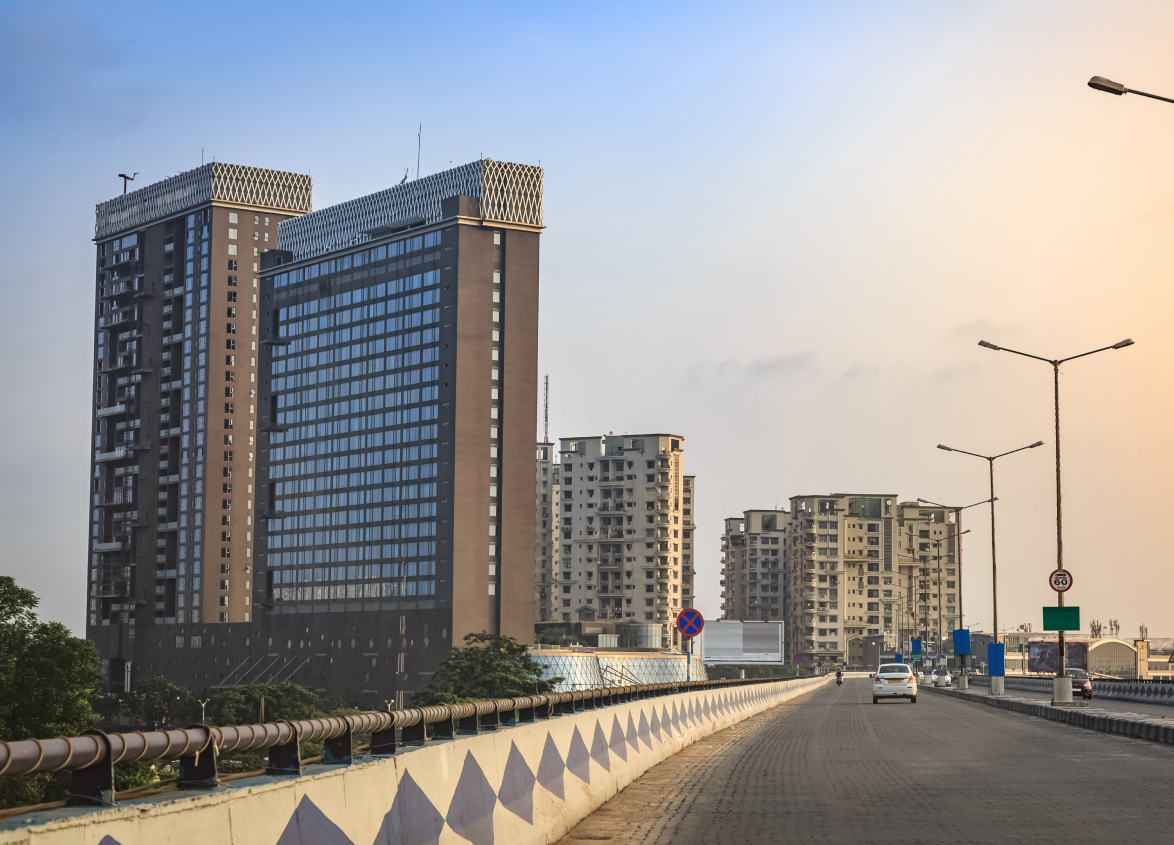
Residential
Tips for first time home buyers in India
April 17, 2023
Buying your first home is one of the biggest financial investment of your life with large capital investment and heaps of long-term benefits. However, investing in real estate can be tricky. There are a multitude of factors to ponder upon, coupled with tons of research and analysis. This blog gives you first-time home buyers tips and suggestions to help taking the leap easier.
Decide on the type of property
There are a plethora of property types in the market, tailor-made as per the needs of the investors. From old-school apartments and villas to new-age gated communities and row houses, make your choice as per your budget and circumstances. While ready-to-occupy properties are in more demand, you can also opt for other projects as well if they have a proper approvals and certificates.
Check your neighbourhood
It is important to scrutinise the location you are planning to invest in. Scan your neighbourhood for basic amenities like reputed educational institutes, premium hospitals, top-notch supermarkets and scrumptious eateries. Make sure your locality strikes the perfect balance between residential and commercial, for a hassle-free living with top amenities and facilities. Check out our blog on the top seven residential localities in Bangalore for more insight on the best areas to live in.
Work on a financial plan
Opting for the right home loan program is the most convenient way to fulfill your real estate investment dreams. With the RERA laws, the newly implemented GST and home loan interest rates at an all-time low, it has never been a better time to invest in real estate. Put down a proper financial plan with details of your income, expenses, and provision for absorbing the home purchase costs. Survey the various loan options provided by banks and financial institutions and make your move wisely. Salaried individuals have access to various loan options with attractive interest rates. Self-employed individuals might require additional documentation and may face slightly different terms.
Find out about your CIBIL credit score and check if there are any outstanding loans or credit card bills. Remember, a healthy credit score (above 750) unlocks better interest rates and smoother loan processing. Additionally, decide on a reputed bank as your loan provider for hassle-free transactions.
Income and affordability
The cornerstone of your financial plan lies in understanding your income and affordability. Before diving into property options, meticulously assess your monthly income, existing debts, and essential expenses. Ideally, your home loan EMI shouldn't exceed 40-50% of your net income to ensure comfortable living and financial flexibility.
Exploring different mortgage options is crucial for aligning your financial situation with your dream home. Consider factors like interest rates, loan tenure, repayment options, and eligibility criteria. Don't just focus on the lowest interest rate. Compare terms, processing fees, and prepayment penalties to choose the loan that best suits your needs and budget.
Additional costs
Beyond the property price, several associated costs add to your home buying journey. Here's a breakdown of the key players:
Stamp Duty: This government levy varies depending on the state and property value. Be prepared for a 3-8% stamp duty on your purchase price.
Registration Charges: These cover legal documentation and registration of your property, typically around 1-2% of the property value.
GST: For under-construction properties, a 5% GST (Goods and Services Tax) applies to the total value, excluding land cost.
Other Expenses: Factor in processing fees, lawyer's charges, society maintenance, and potential renovation costs for a holistic financial picture.
Choose the type of home loan
Based on your financial situation, you can opt for either a fixed home loan or a floating home loan. Selecting the right home loan type hinges on understanding your financial situation and risk tolerance. Let's delve into the two main contenders:
Fixed home loan:
Fixed home loan
| Pros | Cons |
|---|---|
|
|
Floating Home Loan:
Floating Home Loan
| Pros | Cons |
|---|---|
|
|
So, which one's for you?
Choose fixed if you prioritize predictability, have stable income, and anticipate rising interest rates. Choose floating if you're comfortable with some risk, have the flexibility to adjust your budget, and believe interest rates might stay low or even decline.
Additionally, you can explore hybrid loan options that combine the stability of a fixed rate for a portion of the loan with the flexibility of a floating rate for the remaining term. This can offer a middle ground for those seeking a balance between predictability and potential interest savings.
Remember: Consider your financial goals, risk tolerance, and market outlook before making your decision. Consulting a financial advisor can provide personalized guidance tailored to your unique circumstances.
Calculate your return on investment
Any financial move needs to be made with the returns in mind. Whether you are planning to rent out your property or live in it, calculate the return on investment. Buying a house is a long-term venture so pick your location and type of property wisely. Opt for a burgeoning locality with guaranteed returns. Additionally, look into the scalability aspect of your property as well. If you are investing in an independent house, check if you can add a few extra rooms or an additional floor down the years, as per your requirements.
Tax benefits
Investing in a home isn't just about creating a haven, it's also a smart financial move. Here's how tax benefits sweeten the deal:
- Deduction on Principal Repayment: Up to Rs. 1.5 lakh of the principal amount repaid on your home loan can be deducted from your taxable income under Section 80C.
- Interest Deduction: The interest paid on your home loan is also deductible up to Rs. 2 lakh under Section 24B, further reducing your tax burden.
- Additional Deductions: Stamp duty and registration charges can be claimed as deductions under Section 80C, maximizing your tax savings.
Remember: Consult a financial advisor for personalized guidance on maximizing tax benefits based on your specific situation.
Check the legal documentation
As per the newly applied RERA reforms, developers are obliged to register with RERA for every new project exceeding an area of 500 square meters. Make sure you check the license and registration number of the development before investing. Additionally, check if the property has been priced as per the carpet area of your apartment, for a clear-cut transaction. Also, confirm that the developers have received a No Objection Certificate (NOC) which certifies that the property has been completed without any violations.
Opt for a reputed developer
Opt for a reputed developer
As a first-time home buyer, you will be very excited to pick a builder that catches your fancy first. Check the credibility of your builders before signing the deal. Different dealers excel in different types of properties. To make the process easy, invest in a real estate company which is known for its quality projects, on-time handovers and has built an unbeatable reputation over decades of service.
The right time to buy a home
Timing the market perfectly is an elusive dream, but recognizing favorable conditions can enhance your home buying experience. Here are some key indicators to consider:
- Low Interest Rates: Currently, India enjoys historically low home loan interest rates. This translates to lower EMIs and increased affordability, making it an opportune moment to invest.
- Stable/Growing Real Estate: Look for areas with stable or appreciating property values. This ensures long-term value for your investment and potential rental income opportunities.
- Personal Stability: Are you in a stable job with predictable income? Do you have a clear vision for your future in the chosen city? Personal stability is crucial for making a long-term commitment like homeownership.
Remember: Don't solely rely on external factors. Consider your life goals, financial preparedness, and emotional readiness before making the leap.
Buying a home is a milestone in every family household. Make sure you educate yourself adequately on the benefits of investing in real estate and do your research well. Look up properties like Brigade Calista that provide top-end quality and promise a premium lifestyle. Visit Brigade Group to check out a variety of top quality investment options across Bangalore, Mysore, Chennai, Hyderabad, Mangalore, and Mangalore.
FAQs
- What is the best age to buy a house in India?
There's no "one-size-fits-all" answer, as the ideal age depends on individual circumstances. Here's the Indian context:
- Early 20s-30s: Financial stability might be lower, but interest rates are often more favorable, and longer loan tenures are available. Early investment allows for long-term appreciation potential.
- Mid-30s-40s: Career progression and higher income increase affordability, but loan tenure might be shorter. Consider retirement planning alongside homeownership.
- 40s and beyond: Financial stability is often higher, but loan tenures might be shorter, and retirement needs become crucial. Evaluate priorities carefully before investing.
Remember, age is just one factor. Consider your income, savings, career stability, family needs, and future goals before making a decision.
- How much money should I save before buying a house in India?
Aim for a down payment of at least 20-25% of the property value to minimize loan size and interest burden. Factor in additional costs like stamp duty, registration fees, and potential renovations. Consider your income, expenses, and debt obligations to determine a realistic savings target.
- Is location important when purchasing a home?
Absolutely! Location impacts your daily life, commute, access to amenities, property value appreciation, and resale potential. Evaluate factors like:
- Accessibility: Proximity to work, schools, healthcare, and public transport.
- Infrastructure: Availability of roads, parks, and essential services.
- Neighborhood: Safety, community atmosphere, and future development plans.
- Resale potential: Choose a location with stable or appreciating property values.
Utilize online tools and expert guidance to research different neighborhoods and understand their specific advantages and potential drawbacks.
Check the credibility of your builders before signing the deal. Different dealers excel in different types of properties. To make the process easy, invest in a real estate company which is known for its quality projects, on-time handovers and has built an unbeatable reputation over decades of service.
Buying a home is a milestone in every family household. Make sure you educate yourself adequately on the benefits of investing in real estate and do your research well. Look up properties like Brigade Calista that provide top-end quality and promise a premium lifestyle. Visit Brigade Group to check out a variety of top quality investment options across Bangalore, Mysore, Chennai, Hyderabad, Mangalore and Mangalore.
MUST READ
Looking for something specific?
We'd be delighted to help you.









































































































































































































































































































































































































































